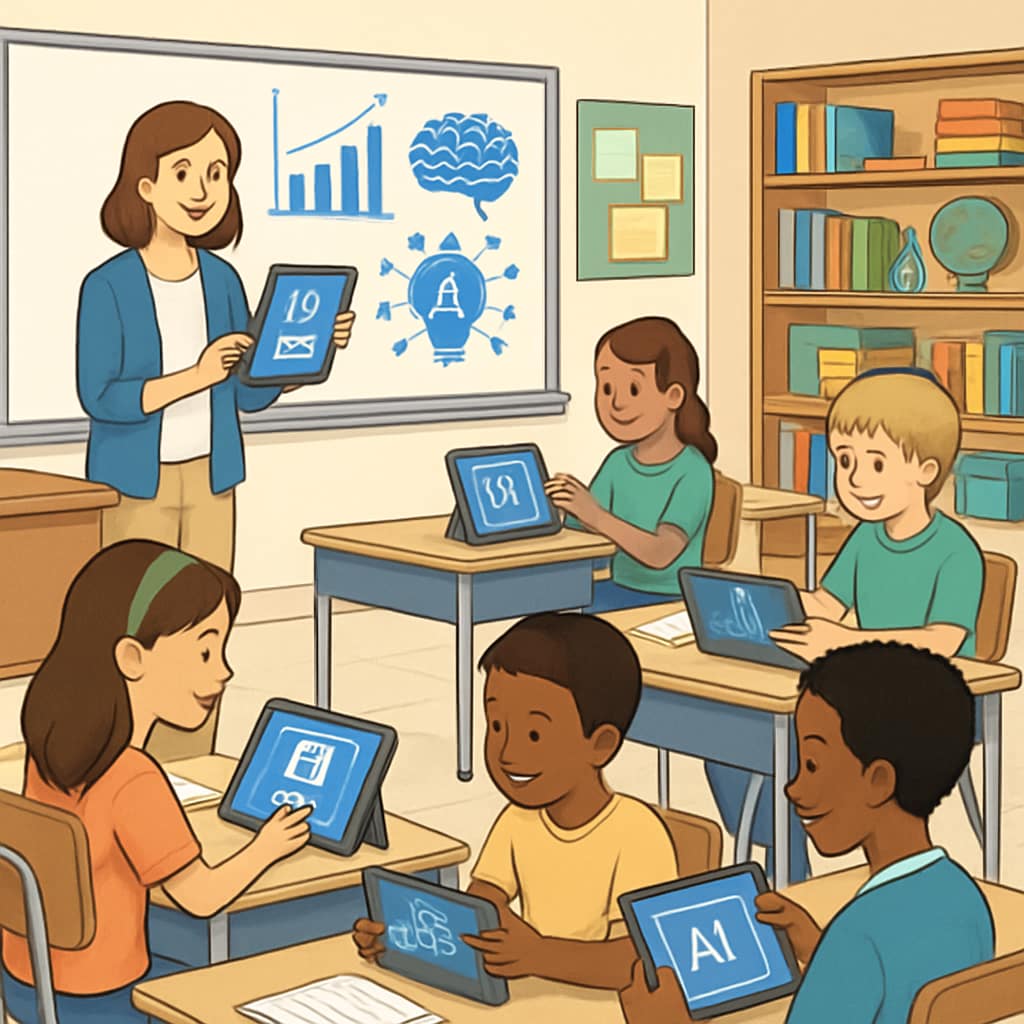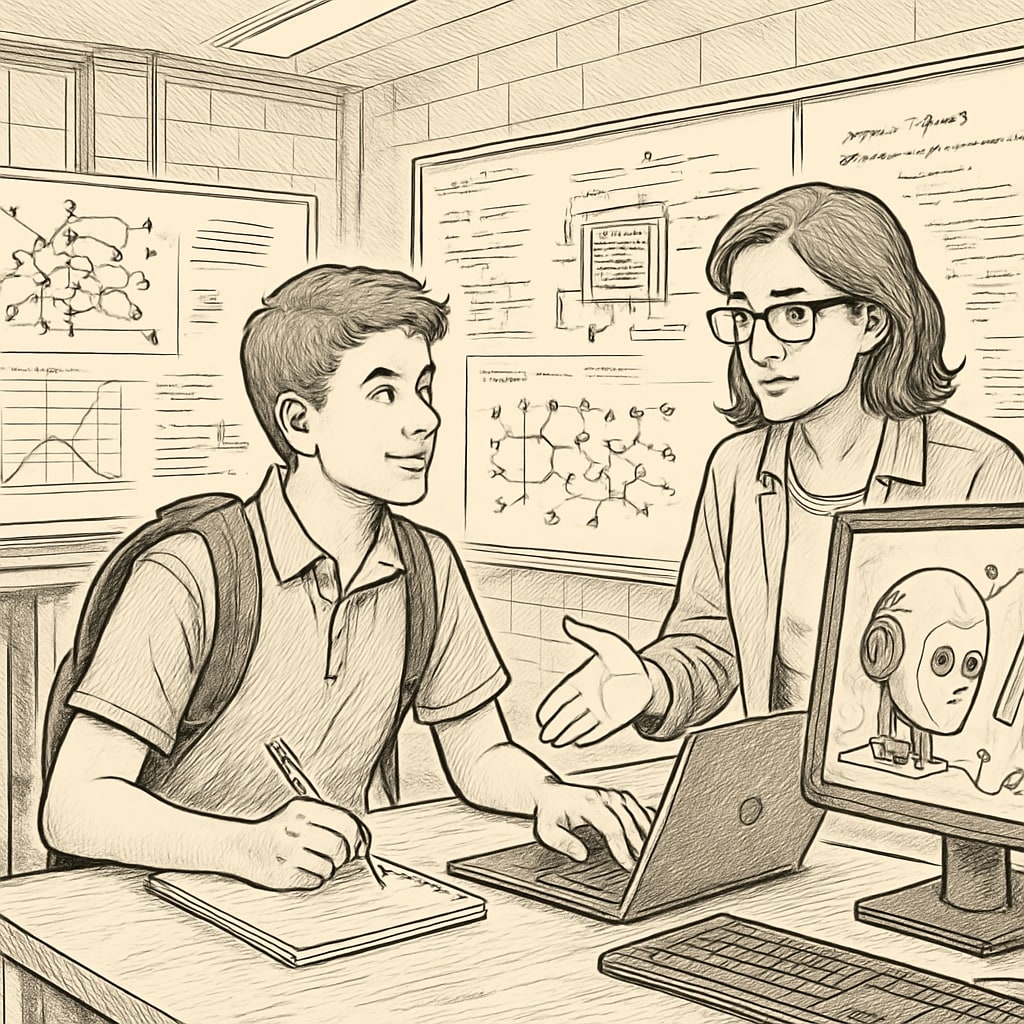The rapid rise of artificial intelligence (AI) is profoundly transforming the landscape of education and careers. From K12 classrooms to higher education institutions, educators and policymakers are grappling with the implications of AI’s disruptive potential. At the same time, concerns about its impact on high-level education and career prospects are growing among students and parents alike. As we enter this new era, it’s crucial to rethink how we prepare young people for a rapidly changing job market and equip them with the skills to thrive in an AI-driven world.
The AI Challenge: Why K12 Education Must Evolve
AI technologies, such as ChatGPT, autonomous systems, and predictive algorithms, are not just tools; they are becoming active participants in industries traditionally dominated by human expertise. For example, AI is now capable of diagnosing diseases, writing code, and even generating creative works. This raises a critical question: Are traditional education systems preparing students effectively for a world where AI will perform many of today’s jobs?
Standardized education models, which emphasize rote memorization and traditional subjects, may no longer be sufficient. Instead, schools must focus on fostering creativity, critical thinking, and emotional intelligence—skills that are less likely to be automated. Additionally, STEM (Science, Technology, Engineering, and Mathematics) education must be expanded to include AI literacy, enabling students to understand and interact with these technologies responsibly.
- Creativity and Innovation: Encouraging students to think outside the box and solve problems uniquely.
- Critical Thinking: Helping students analyze complex problems and make data-driven decisions.
- Ethical AI Use: Teaching the moral and societal implications of AI technologies.

Higher Education in the Age of Automation
Higher education is also at a crossroads. With AI automating tasks in fields like medicine, law, and finance, the value of traditional degrees is being called into question. Students and parents are understandably anxious about spending years and significant financial resources on education that may not guarantee job security.
To address this, universities must pivot toward interdisciplinary programs that integrate AI with other fields. For instance, combining computer science with healthcare or environmental science can open new career paths. Moreover, institutions should focus on lifelong learning opportunities, allowing professionals to upskill or reskill as technology evolves.
Another critical area is experiential learning. Internships, cooperative education, and project-based coursework provide students with real-world experience and adaptability, qualities that are essential in an AI-driven job market. By aligning curricula with industry needs, higher education can remain relevant and valuable.

Mitigating AI Anxiety: A Role for Educators and Parents
One of the most pressing challenges is addressing the fear that AI will replace human jobs. While this concern is valid, it is not the whole story. History shows that technological advancements often create new opportunities even as they render some roles obsolete. For example, the Industrial Revolution led to the creation of entirely new industries and professions.
Educators and parents play a crucial role in reframing this narrative. By emphasizing the importance of adaptability and lifelong learning, they can help students view AI as a tool rather than a threat. Schools can also introduce career counseling programs that focus on emerging fields, such as AI ethics, human-AI collaboration, and green technologies, to guide students toward promising career paths.
Furthermore, partnerships between schools and tech companies can provide students with hands-on experiences and exposure to cutting-edge technologies. These collaborations can demystify AI and build confidence in students’ ability to navigate an AI-augmented world.
Future Careers: Skills That Stand the Test of Time
As AI continues to evolve, certain skills will remain vital regardless of technological advancements. These include:
- Adaptability: The ability to learn and unlearn quickly in response to new challenges.
- Emotional Intelligence: Skills like empathy and communication that are uniquely human.
- Leadership: Guiding teams and making strategic decisions in complex environments.
By focusing on these foundational skills, education systems can help students not just survive but thrive in the AI era. Ultimately, the goal is to prepare individuals who can complement AI, not compete against it.
Readability guidance: This article uses short paragraphs and lists to enhance readability. It balances technical terms with accessible language, ensuring that readers from various backgrounds can understand the content. Logical transitions and real-world examples are included to maintain engagement.


